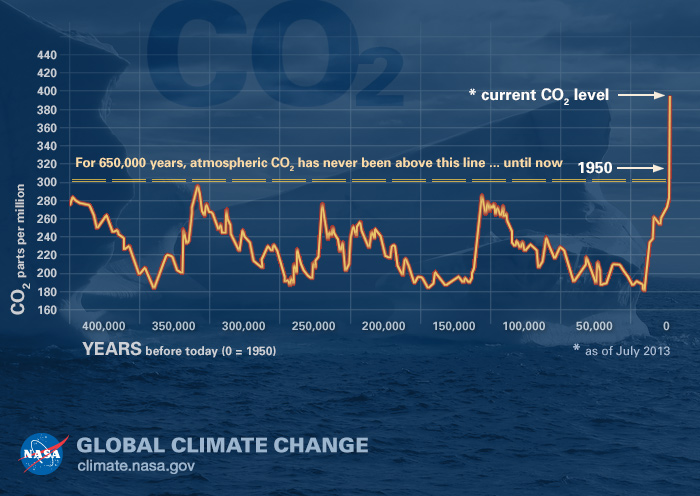Strongest Warning Yet on Climate Change
November 4, 2014
Earth faces “severe, pervasive and irreversible impacts for people and ecosystems” if climate change continues at its current rate, according to a summary assessment of some 30,000 studies on climate change by the Intergovernmental Panel on Climate Change (IPCC). A committee of the United Nations, the IPCC provides scientific information to world governments about the impact of human activities on global warming.
According to the new report, cutting the emissions of greenhouse gases, particularly carbon dioxide, is essential to prevent global warming from rising more than 3.6 °F (2 °C) above levels at the start of the Industrial Revolution. This increase in average surface temperatures is widely accepted by scientists as the “tipping point” for devastating climate change. To meet this goal, the IPCC reported, the amount of power obtained from renewable forms of energy must increase from 30 percent to 80 percent of all power by 2050. And unless efficient forms of carbon capture and storage (CCS) are developed, people should quit burning fossil fuels altogether by 2100. Also known as carbon sequestration, CSS involves capturing the carbon dioxide released by burning fossil fuels and storing it in deep underground rock formations.

Levels of atmospheric carbon dioxide (CO2) are higher today than at any time in the past 400,000 years. Although CO2 levels fluctuate naturally, the levels are much higher than they would have been if people were not burning such huge amounts of fossil fuels, including coal, oil, and gas. About 60 percent of fossil-fuel emissions remain in the atmosphere, causing global warming. (National Oceanic and Atmospheric Administration)
The new report, called the Synthesis Report, combines the findings of three assessments released over the past 14 months. Those reports were compiled by more than 800 scientists from 100 countries. One assessment, released in March 2014, concluded that rising global temperatures are threatening the world’s food supplies, intensifying violent storms and droughts, pushing sea levels dangerously higher, and causing serious disruptions in land and ocean ecosystems. In that report, the IPCC also warned for the first time that climate change poses a threat to human security by increasing the risk of violent conflict over natural resources and because of large-scale migrations by people fleeing difficult environmental conditions. In another assessment, released in September 2013, IPCC scientists reported being 95 percent certain that humans are the “dominant cause” of global warming.
The Synthesis Report also offered hope. It noted that the cost of even the most aggressive actions to reduce emissions would have only a small effect on world economic growth in this century. In addition, governments and industry are spending some $200 billion a year less on combating climate change than they are on developing new sources of fossil fuels. “We have the means to limit climate change.” said R. K. Pachauri, chair of the IPCC. “The solutions are many and allow for continued economic and human development. All we need is the will to change. …”
Additional World Book articles:
- The Great Meltdown (a special report)
- Methane (a special report)
- Meltdown: Climate Change in the Arctic (a special report)
- Probing the History of Climate Change (a special report)
- What We Know About Climate Change (a special report)


